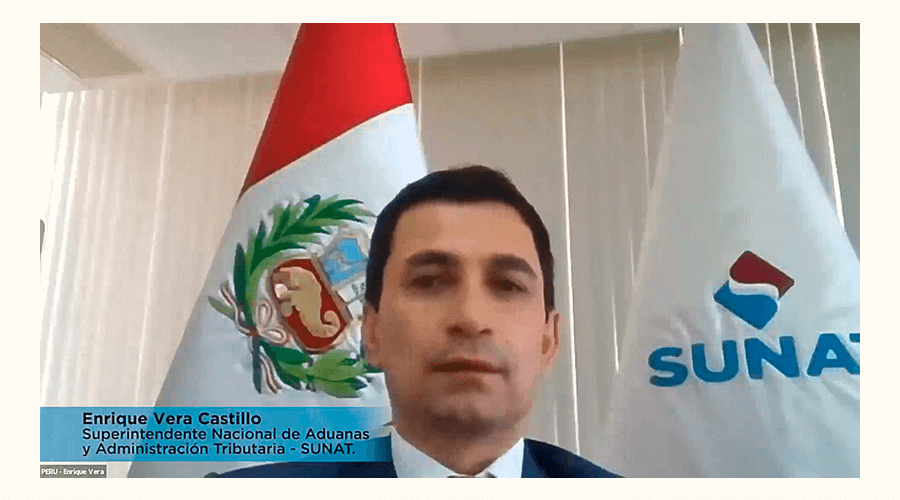Tax administrations and international organizations coincide in Forum organized from Peru

EXCHANGE OF FINANCIAL AND TAX INFORMATION REDUCES OPPORTUNITIES FOR TRANSNATIONAL EVASION AND AVOIDANCE
Between 9 and 11 march, a virtual International Workshop was held on the “Use of data for the automatic exchange in the management of non-compliance risks”, which was organized by the National Superintendent of Customs and Tax Administration (SUNAT), the Fiscal Affairs Department (FAD) of the International Monetary Fund (IMF) and with the support of the government of Switzerland through its State Secretariat for Economic Affairs (SECO).
The workshop aimed to analyze the progress and experiences accumulated by the tax administrations of Argentina, Chile, Colombia, Spain, Mexico, Norway, Peru, and Uruguay in the incorporation of data obtained from the automatic exchange of tax information, materialized in the country-by-Country Report, and financial information, incorporated in the financial report, to the management of non-compliance risks.
In this way, the representatives of these entities made known how this data is used together with the other sources of information for the identification, quantification, treatment, and feedback of the main modalities of non-compliance detected, in order to fight against tax evasion and avoidance carried out in cross-border or intragroup transactions,
 Similarly, representatives of the Organization for Economic Cooperation and Development (OECD), the Global Forum on transparency and exchange of information, the Inter-American Center for tax administrations (CIAT), and the Tax Justice Network provided their views on future trends and prospects for the use of exchange data in the management of non-compliance risks.
Similarly, representatives of the Organization for Economic Cooperation and Development (OECD), the Global Forum on transparency and exchange of information, the Inter-American Center for tax administrations (CIAT), and the Tax Justice Network provided their views on future trends and prospects for the use of exchange data in the management of non-compliance risks.
Luis Enrique Vera, National Superintendent of Sunat of Peru, highlighted Peru’s commitment to compliance with the Convention on Mutual Administrative Assistance in tax matters and noted that the ultimate objective of transparency and information exchange measures is to generate a fair collection for the proper development of the citizens of our countries.
Gonzalo Arias, director of International Cooperation and taxation of CIAT, said that today we all trust in the automatic exchange of information; however, there are challenges in domestic issues of countries that must be solved to better enhance this tool. He added that the challenge for tax administrations is in the implementation of joint audits, making use of the Convention on Mutual Administrative Assistance in tax matters.
Zayda Mannata, head of the secretariat of the OECD Global Forum, said that the automatic exchange of financial information already has a significant impact on improving the tax collection of several countries, and indicated that in the near future it is projected to incorporate information on digital goods and cryptocurrencies into this tool.
At the end of the Workshop, Enrique Rojas, a Senior Economist at the fiscal affairs Department of the IMF, stated that, in a way to complement the various forms of technical assistance promoted by the International Monetary Fund, working groups will be set in the virtual mode with the participation of the Tax Administrations with the aim to analyze specific problems submitted to them, to be shared in face-to-face or virtual seminars, covering various issues such as aggressive tax planning.
5,571 total views, 1 views today
